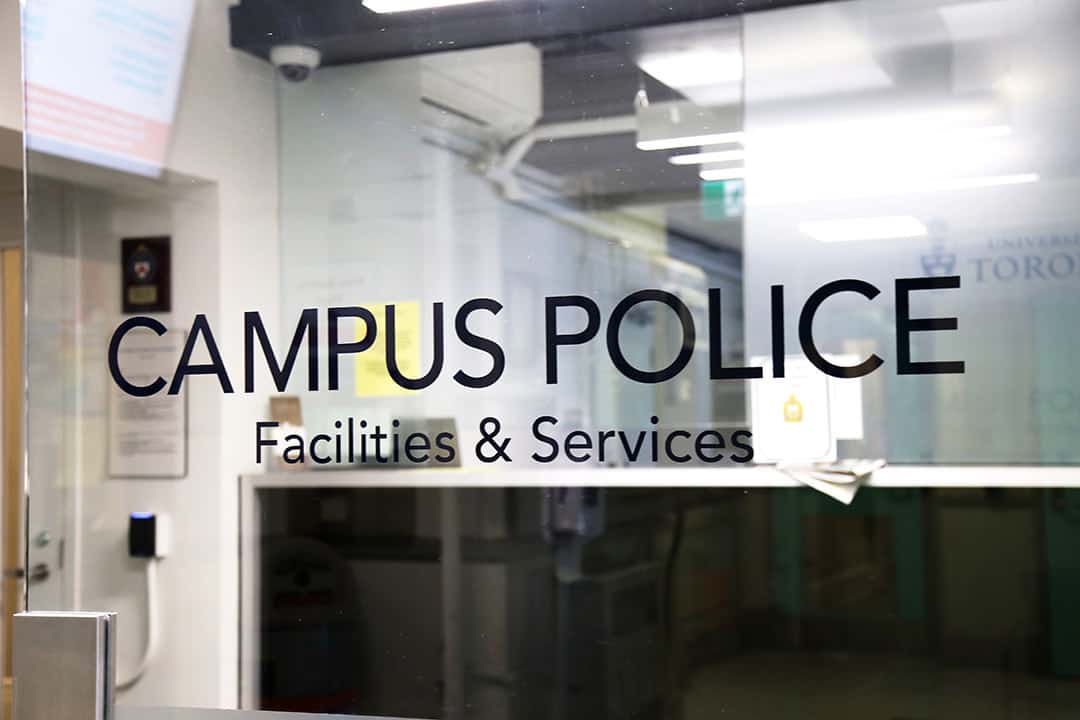The release of annual Campus Police reports from UTSG, UTM, and UTSC shows an overall decrease in crime, specifically thefts.
Increase in reported sexual assaults and protests at UTSG
Reported incidents of sexual assault increased from two in 2015 to 11 in 2016 at UTSG. These incidents were passed on to the Toronto Police for investigation. The Campus Police report states that it is unknown what caused the increase in reported sexual assaults.
Kelly Hannah-Moffat, Vice President of Human Resources and Equity at U of T, told The Varsity that the number of reported incidents does not reflect unreported incidents or those reported to another authority. The rise in reports “may not be a bad thing,” said Hannah-Moffat. “In some cases, around interpersonal violence, it is a positive sign, seeing that people are more comfortable coming forward and reporting those things.”
Campus Police are required to attend training in “Sexual Harassment Employee Responsibilities.” Four Campus Police officers also received training in “Investigation of Sexual Misconduct at Institutions of Higher Learning.” Hannah-Moffat said that the university is “trying to create a culture where people feel comfortable telling someone about their experience.”
The approved Policy on Sexual Violence and Sexual Harassment, effective January 1, 2017, establishes a Sexual Violence Prevention and Support Centre on each campus, where students can report cases of sexual violence. During emergencies, reports can also be filed with the Campus Police, who will then inform the centre.
The Campus Police report also noted a rise in reported incidents of protest, from 10 in 2015 to 14 in 2016, at UTSG. Recent examples include rallies such as the ‘rally for Free Speech’ that occurred outside of Sidney Smith and the Black Liberation Collective’s protest of the UTSU in October 2016.
In January 2017, the University of Toronto Students’ Union (UTSU) called for a review of the Campus Police’s involvement at the so-called rally for free speech in October 2016, claiming that the Campus Police had failed to protect all students in potentially dangerous situations. The final report, however, concluded that Campus Police had “performed its duties in accordance with the scope of its authority.”
Reported “Quality of Life” incidents — including protests, hate crimes, trespassing, and false alarm of fire — decreased from 496 reports in 2015 to 404 reports in 2016, with major decreases in medical incidents and damage without intent.
The report also reveals that there were 69 fewer theft occurrences than in 2015. In 2016, Althea Blackburn-Evans, Director of Media Relations at U of T, told The Varsity that Campus Police would be focused among students and in library settings to combat rising numbers in theft — largely targeting libraries and bikes.
In 2016, Campus Police received approximately 82,000 calls. Due to their unique status as Special Constables, Campus Police work with the Toronto Police on certain investigations and issues.
A major crime decline at UTSC
UTSC’s annual Campus Police report details a major decline in crime across campus, with the largest decreases in the categories “Theft Under $5000,” “Assist Community Member,” and “Involvement in Suspicious Circumstances.”
The UTSC Campus Police faced an increase of 13 reports in bike theft over the previous year. Reportedly, through patrols and communication with staff and students, two non-community members were arrested for several bike thefts on campus.
Gary Pitcher, Director of Campus Safety Issue and Emergency Management at UTSC, told The Varsity that having “smaller numbers and being centrally located makes our job easier.” Student population at UTSC has grown from 12,315 in 2014 to 13,174 in 2016.
When it comes to theft on campus, the report cites the use of patrols and postering campaigns that have increased awareness on campus, resulting in the arrest of one individual and a decrease in theft overall.
Community-based policing strategies
Pitcher ascribes the decrease in some crime, specifically theft, to community-based policing approaches initiated by the Campus Police that aim to build partnerships between the organization and students, staff, and faculty.
At UTM and UTSC, Campus Police attempt to engage the community on an interpersonal level. Hosting movie nights, participating in student events, and “Coffee with a COP” are amongst a number of strategies designed to create a partnership with the community.


